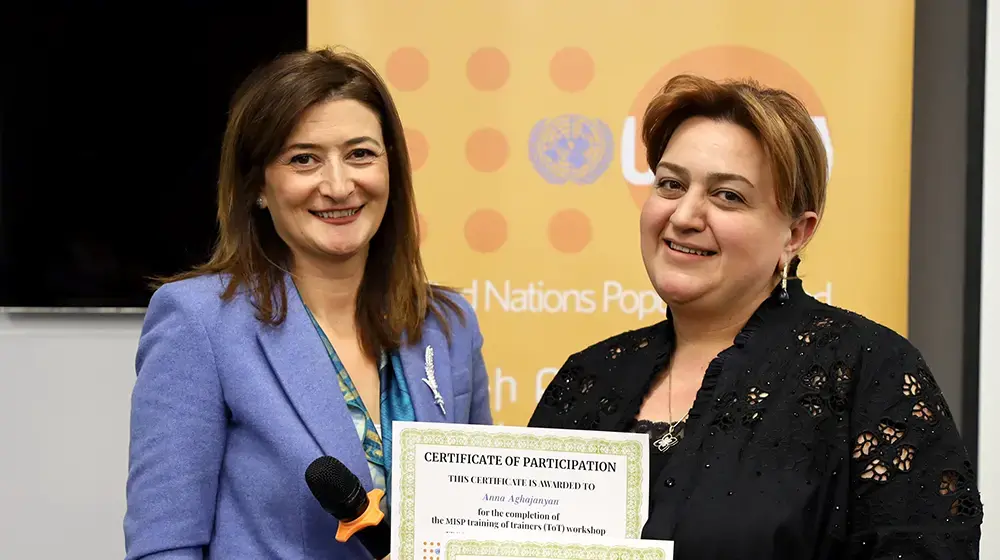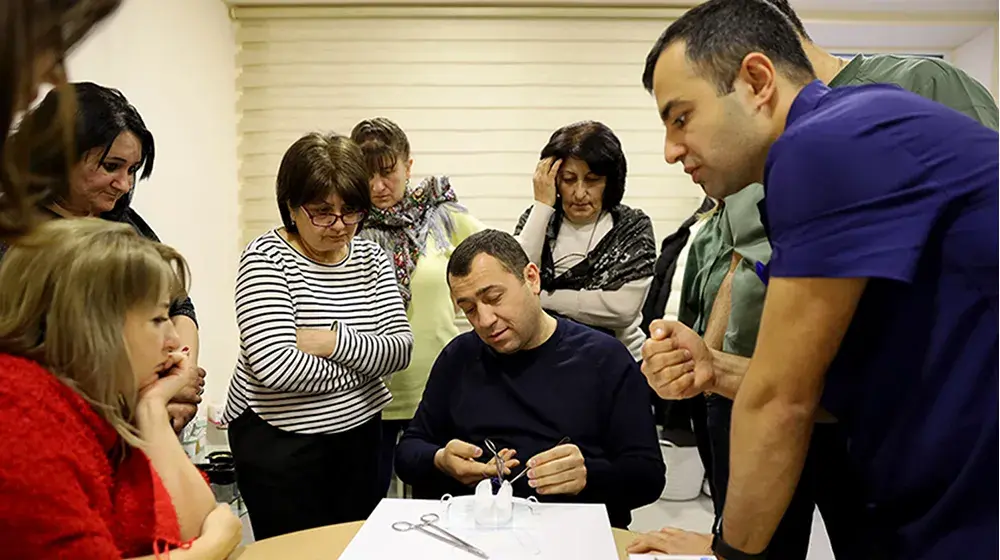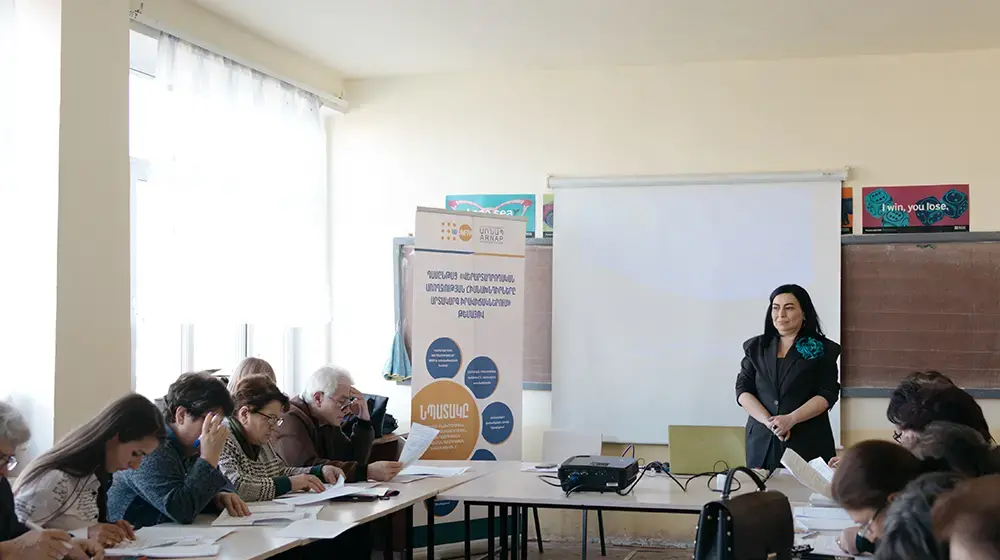One of the internationally accepted modern principles of quality of care is usage of evidence-based clinical guidelines and protocols when treating patients.
There are several advantages to this for both patients and medical workers: patients receive care of certain guaranteed quality irrespective of the facility and provider; at the same time, they create safeguards for medical workers against medical error. Moreover, modern clinical guidelines and protocols are evidence-based and updated every three years to account for new developments in medical science.
Recognizing this, the Ministry of Health of Armenia initiated a programme on developing evidence based clinical guidelines and protocols, including SRH guidelines. Following the Ministry’s request, UNFPA provided support to the Ministry of Health for advancing national guidelines and protocols in accordance with modern international standards in quality of care to improve existing maternal care system in Armenia. Thus, the first guidelines were developed on the following topics:
- Management of pre-eclampsia and eclampsia
- Management of obstetric haemorrhage
- Management of purulent-septic complications
- Thromboprophylaxis in pregnancy and puerperium
- Prediction and prevention of preterm birth,
- Management of recurrent miscarriages.
- Management of premature prelabour rupture of membranes
- Intrauterine growth restriction.
In addition, several Armenian reproductive health experts participated in the regional training courses for development, implementation and monitoring of national evidence-based clinical guidelines organized by UNFPA and East European Institute for Reproductive Health.
Further strengthening of the capacities of key stakeholders was considered needed to substantially contribute to development of adequate clinical guidelines and protocols, and a national training course was organized with UNFPA support to increase the number of professionals from different specialties knowledgeable about the advanced methodology of adaptation clinical guidelines.
Dr. Mihai Horga (on the left) and Dr. Vahe Gyulkhasyan at the training course
The course took place on 17 – 18 February 2017. Mr. Mihai Horga, Senior Advisor at the East European Institute for Reproductive Health, and former UNFPA Assistant Representative in Romania, led the training course. A local team of trainers was established by the UNFPA, composed of two experts: Dr. Vahe Gyulkhasyan, UNFPA SRH Project Officer and Associate Professor in the Department of Obstetrics and Gynecology No. 2, and Dr. Vruyr Grigoryan, Associate Professor in the Department of Obstetrics and Gynaecology No. 2, Yerevan State Medical University.
Thirty-three trainees participated at the training. The trainees included physicians/clinicians, managers and/or decision-makers representing governmental institutions, university/academia or other type of institutions involved in clinical guidelines.
In the opening session, Dr. Harutyun Mangoyan, Coordinator of the Clinical Guidelines Committee in the Ministry of Health, and Mr. Garik Hayrapetyan, UNFPA Assistant Representative in Armenia welcomed the trainees.
The interactive training course covered aspects such as the background to guideline development, developing the outline for a clinical guideline, methodologies for guideline adaptation, and local implementation of national clinical guidelines, and included practical group exercises and pre- and post-course assessments.
The trainees of the course are expected to play key roles in clinical guideline development teams envisaged by the Ministry of Health that would commence their work in 2017.




